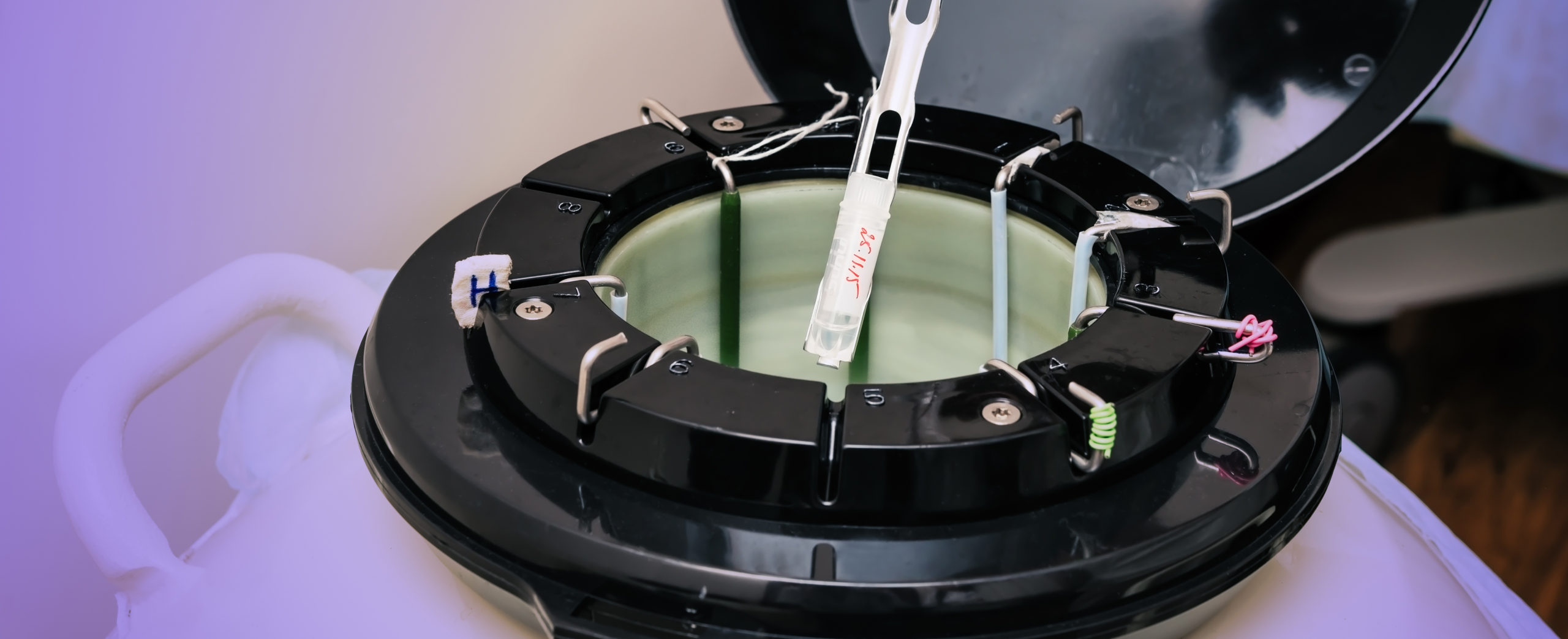
Written by: Thomas A. Molinaro, MD, MSCE, FACOG of Reproductive Medicine Associates of New Jersey.
Lately you hear a good amount of buss surrounding celebrities and their personal stories relating to egg freezing. So why are so many celebrities and now non-celebrities opting for and pursuing the process of egg freezing? Women are born with a certain amount of eggs and over time the quantity and quality of eggs will lessen. Also, eggs that are released from younger women are often better quality and may result in a healthier pregnancy. Female students and career-focused women can now plan for the future and freeze their eggs if they choose. This allows a women to preserve her fertility at her current age, so she can become a parent when she is ready. Read on to learn more about egg freezing:
Who is egg freezing best for? When is best to do it and who are the best candidates for success?
Egg (or oocyte) freezing is an option for any woman seeking to preserve her fertility. It is more likely to be successful for women under age 35 but it has been used successfully for many older women. In order to find out if egg freezing is right for you, it is important to have an evaluation of your “ovarian reserve” which involves blood tests and a vaginal ultrasound. Every woman is born with a fixed number of eggs and uses some up each month. The quantity and quality of eggs therefore decreases with age. Women
What is the process, from beginning to end? Would you say it’s easy?
The process involves 8 to 10 days of taking hormonal injections to mature multiple eggs. This process involves 5-6 visits for blood work and ultrasound to monitor the progress. These are usually performed early in the morning to allow for same day results. At the end of these injections a procedure is performed called an egg retrieval. During this procedure, the patient receives Intravenous sedation and a vaginal ultrasound is used to visualize the ovaries and a needle passed through the vagina to extract the eggs. The eggs are frozen that day and can last indefinitely. The day of the procedure you may feel cramping but mostly sleepy from the anesthesia. Most women are able to resume normal activities the next day.
When the time is right, the eggs can be thawed and fertilized with sperm through the process of In Vitro Fertilization. Embryos that are created through this process can be tested for chromosomal abnormalities and one embryo placed in the uterus to help achieve a healthy pregnancy.
Does insurance often cover the process? How much does it tend to cost?
Insurance does not often cover these types of procedures. The cost can range from 10 to 14 thousand dollars for the procedures. There are also annual fees for storage of the frozen eggs.
What is the likelihood you’ll be able to get pregnant and that your eggs will be thawed successfully? It’s not a guarantee or fool-proof plan for pregnancy, correct?
Egg freezing is a way to provide a chance at a pregnancy in the future. It is not a guarantee that these eggs will result in a baby. We know that roughly only 80-85% of eggs will thaw successfully. At RMA of New Jersey we performed a study which showed that eggs that were frozen were about 2/3 as efficient at generating healthy embryos. These embryos were just as likely to result in a healthy baby as those that came from embryos that were never frozen. The chances of getting pregnant from these embryos is based on the age of the woman when the eggs were frozen but can be very high in the right circumstances.
Can the process be uncomfortable or painful?
The medications can cause bloating and abdominal cramping. The egg retrieval procedure is tolerated well with some abdominal pain afterwards that is like menstrual cramps. Most women can go to work the day after. There are other more serious complications which are fortunately very rare.
What do you wish more women know about egg freezing?
Many women think about egg freezing when they are younger but do not go through with it until they are in their late 30’s or early 40’s. As women get older the efficiency of egg freezing drops and the chances for success are lower. It would be better for women to freeze their eggs at a younger age if possible.
Do you think there are a lot of myths surrounding it?
Many women think that freezing eggs is a guarantee that they will be able to get pregnant. Freezing eggs is entirely dependent on the quality of the eggs that are frozen. It is also a common misconception that freezing eggs is the same everywhere. This is not true. There are variations in laboratory techniques that make some IVF laboratories more successful at freezing and thawing these eggs. Women should look for an IVF center with access to the latest technology with experience freezing eggs.
Do you think it’s right for everyone?
Egg freezing is not right for everyone. However if a woman is thinking of delaying childbearing it may be a way to preserve the opportunity for pregnancy



